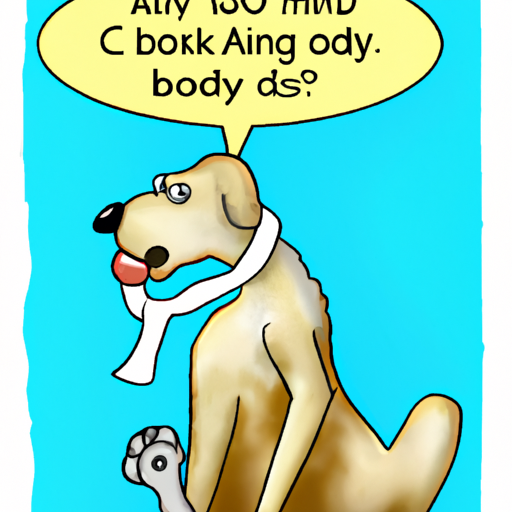Understanding the Canine Instinct
You may have noticed how your furry companion seems drawn to your wounds. Whenever you get a cut or scrape, they’re right there, giving it a thorough lick. The reason behind this behavior is rooted in their instinct. Dogs are descendants of wolves, and in the wild, wolves would lick each other’s wounds to help clean them and promote healing. It’s a form of caregiving, a way for them to express concern and care for the pack.
The Science Behind the Lick
When dogs lick, their saliva comes into contact with the wound. Canine saliva has been found to contain a variety of compounds that can aid in healing, including:
- Lysozyme: an enzyme that destroys harmful bacteria.
- Peroxidase: a compound that helps break down pathogens.
- Opiorphin: a pain reliever.
- Nerve Growth Factor: which promotes wound healing.
However, this does not mean that a dog’s lick is a substitute for proper medical attention. While their saliva can help in some ways, it’s still essential to clean your wounds properly and seek medical attention if needed.
How It’s Viewed in Different Cultures
In many cultures, it’s believed that a dog licking your wounds can help them heal faster. This belief is not entirely unfounded, as we’ve seen, but it’s crucial to remember that while dogs mean well, their mouths can also harbor harmful bacteria.
| Culture | Belief |
|---|---|
| Ancient Egyptians | Dogs were sacred, and their lick was seen as a healing blessing. |
| Ancient Greeks | Dogs were associated with Asclepius, the god of medicine and healing. |
How to Respond to the Licking Behavior
While your dog’s instinct to lick your wounds comes from a place of care, it’s important to discourage this behavior for health reasons. You can:
- Gently tell them “no” and redirect their attention to a toy or treat.
- Cover your wounds to prevent them from licking.
- Consult with a vet if the licking behavior becomes excessive, as it could indicate a behavioral issue.
The Potential Risks
Despite the potential benefits, there’s also a risk of infection from harmful bacteria in a dog’s mouth. The dog’s mouth is not necessarily cleaner than a human’s, and certain bacteria, such as Capnocytophaga Canimorsus, can cause severe infections.
FAQ
Q: Is it safe for my dog to lick my wounds?
A: While dogs do this out of instinct and their saliva has some beneficial compounds, it’s not entirely safe due to the risk of infection.
Q: What should I do if my dog won’t stop licking my wound?
A: Try distracting them with a toy or treat, or cover your wound. If the behavior continues, seek advice from a vet.
Q: Can a dog’s lick actually heal wounds faster?
A: Some compounds in a dog’s saliva can aid in healing, but this does not replace proper wound care and medical attention.
Q: What other behaviors are related to my dog’s instinct to lick wounds?
A: Dogs may also lick their own wounds or those of other dogs. They may also lick you as a sign of affection, not just when you have a wound.
Q: Can I get sick from my dog licking my wounds?
A: Yes, there’s a risk of infection from bacteria in a dog’s mouth. It’s best to discourage this behavior and keep wounds clean and properly bandaged.



